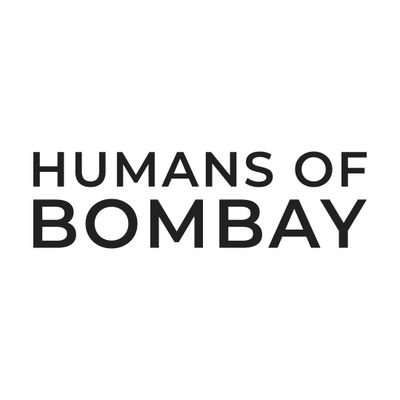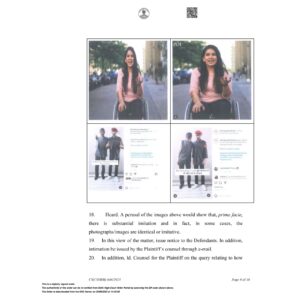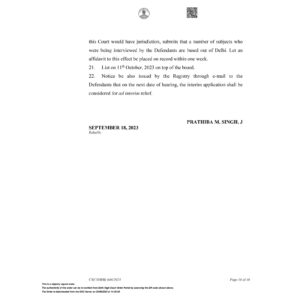Nithyakalyani Narayanan. V
Humans of Bombay, a social media platform renowned for sharing inspirational and relatable stories of individuals in India through interviews and posts, has recently made headlines by initiating a legal case against another Indian storytelling platform known as ‘People of India.’ Their claim revolves around allegations that the latter platform has been copying their content. This controversy gained further traction when Brandon Stanton, the founder of Humans of New York, expressed his perspective on X (formerly Twitter), asserting that HOB itself draws inspiration from his original work, thus raising questions about fairness and hypocrisy.
How the controversy started
The controversy began when the Mumbai-based company filed a case against POI Social Media Private Ltd., claiming that they had copied the former’s “unique” storytelling format and published the same content, including images and videos. The complaint states that the defendant has infringed the copyright in films hoisted on the complainant’s Instagram account and YouTube page.
Advocate Abhishek Malhotra, representing HOB, claimed that POI has copied his client’s images/videos and used those on their platforms. He submitted a comparative table with some of the images mentioned in the complaint. Among the various reliefs sought, the complainant requested to order the defendant to take down the HOB’s work which has been created by POI either directly or indirectly.
On September 18th, Justice Prathiba Singh of the Delhi High Court issued a notice to POI. The Cout remarked that there seemed to be “substantial imitations” and in some cases, the photos were identical: “…the similarities between the Infringing Content and the Plaintiff’s content not just constitutes infringement of copyright owned by the Plaintiff, but also, to passing off and unfair competition, as the Defendants have, evidently, knowingly and deliberately, published content that is identical or substantially similar to the popular Content comprised of Plaintiffs Works in an attempt to ride on goodwill that has been painstakingly built by the Plaintiff.” The case has been posted for hearing on October 11.
How the suit captured global attention
On September 23rd, Brandon Stanton, founder of HONY posted on X that, “I’ve stayed quiet on the appropriation of my work because I think @HumansOfBombay shares important stories, even if they’ve monetized far past anything I’d feel comfortable doing on HoNY. But you can’t be suing people for what I’ve forgiven you for.”
The next day, HOB, founded in 2014, posted on X that although HOB is “shocked” at the “cryptic assault” by Brandon on their efforts to protect their intellectual property, they are grateful to him and HONY for starting this storytelling movement. They also clarified that the case is in relation to the protection of intellectual property in their posts and not about storytelling.
On September 26th, Brandon put up a new post, saying that he encourages anyone using the concept “to express something true and beautiful about their community” but did not identify with anyone using it “to create a certain lifestyle for themselves”.
Netizens quickly brought up old interviews of Karishma Mehta, the founder of HOB. In her 2017 TEDx talk, she said that the idea of HOB was “completely random and out of the blue”.
Karishma Mehta stated candidly in an interview this year that HOB is a business that operates on advertisements and collaborations with big brands like Amazon, Unilever and others, for their campaigns. The page offers clients the opportunity to be featured on its posts in return for a fee.
However, the aim of HONY, founded in 2010, was completely different. The platform is known to raise funds for the needy, including hurricane victims in the US and Rohingya refugees.




